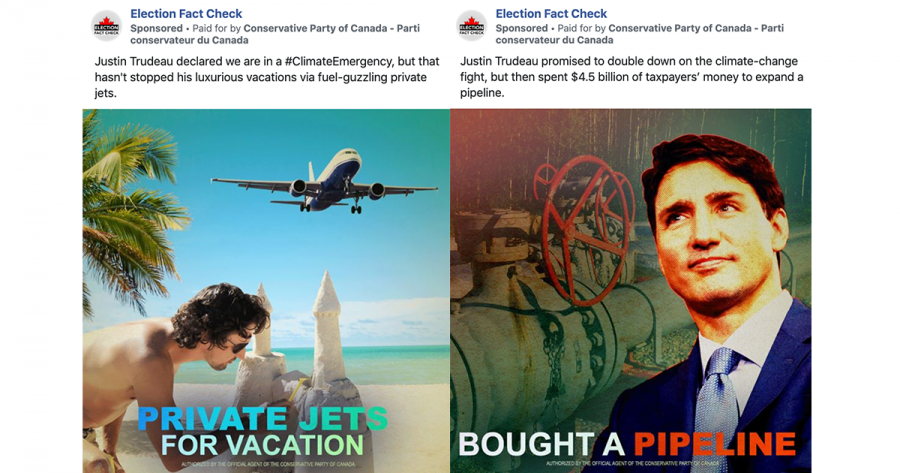Fake fact-checking pages on Facebook have been attempting to influence the upcoming Canadian Federal Election, according to researchers at NYU Tandon School of Engineering.
The research is part of the Online Political Transparency Project at the Center for Cybersecurity at NYU, which aims to increase transparency regarding political advertisements on social media. The project previously analyzed nearly 900,000 online political advertisements in the U.S. in September 2018, finding that President Donald Trump’s campaign had the highest number of advertisements.
For the Canadian elections, they created a website that is updated daily with how much money pages on Facebook are estimated to be spending on political advertisements, along with the demographic and regional breakdowns of the spending.
Through their analysis, the researchers found pages they termed “faux fact check sites,” such as Election Fact Check, which was created in September and describes itself as “fact-checking election-related issues.” The page is currently running at least 65 advertisements attacking Canada’s Prime Minister and leader of the Liberal Party, Justin Trudeau. The advertisements are being paid for by the Conservative Party of Canada.
Tandon Ph.D. candidate Laura Edelson, one of the lead researchers, said that while the reach of these advertisements is small, the continued co-opting of the term fact check by partisan sites could become a significant issue.
“The reason that it’s interesting is that this is the first time I have seen the term fact check being co-opted like this,” Edelson said. “And obviously, as this continues, fact check is going to go the way of fake news in terms of just being a meaningless term.”
Another page, Canada Fact Check, is not currently running any advertisements, but has paid for several in the past that targeted the leader of the Conservative party. It does not disclose who is paying for the advertisements beyond Canada Fact Check. Neither site has posted any fact-checking content.
As a whole, however, Assistant Professor of Computer Science and Engineering Damon McCoy said that their initial analysis hasn’t found as many instances of inauthentic advertising in Canada as they did in the U.S.
McCoy said this could be due to Canada’s more stringent laws regarding campaign spending.
“The regulation has dramatically changed what we see in terms of political advertising in Canada, so it’s extremely different than the type of political advertising that we see in the U.S.,” McCoy said. “Within [Canada], there’s much less money spent, [and] as far as we can tell, there’s much less of this bad advertisers in the Canadian political advertising ecosystem.”
McCoy defined bad advertisers as pages that are not transparent about who is actually running and paying for the advertisements.
Canadian and LS sophomore Tony Yu said he’s been seeing a lot of advertisements on Facebook and YouTube about the election. He said that it’s not enough for pages to disclose who is behind the advertisements, but they should also declare what political party they’re supporting.
Still, he didn’t think the advertisements were that persuasive.
“I think a lot of ads carry a lot of misinformation, but as an informed citizen, I know that their purpose is just to accuse the other candidate or just to say bad things about them,” Yu said. “So I don’t really care much about the ads.”
Tisch first-year Brianna Clark, who is also Canadian and has been seeing many political advertisements online, said that she was shocked at the amount of money being spent on them after looking through the researcher’s website, and thinks more people should know about it.
“I think it’s important to spread the word that this is something [the politicians and parties are] focusing so much time and effort on and why that is,” Clark said. “I think young people definitely shouldn’t just be taking their information on these kind of distilled points that certain political parties are deciding to advertise with.”
The researchers plan to continue analyzing Facebook advertisements in real time for future elections in other countries, and are working on developing algorithms that can be used to identify inauthentic advertisements.
“We know that there are ongoing campaigns targeting vulnerable communities with misinformation, and we have no reason to think that that’s going to stop anytime soon,” Edelson said. “No one has really come up with a defense against this that seems to work, so that should be a concern.”
Email Akiva Thalheim at [email protected].
























































































































































